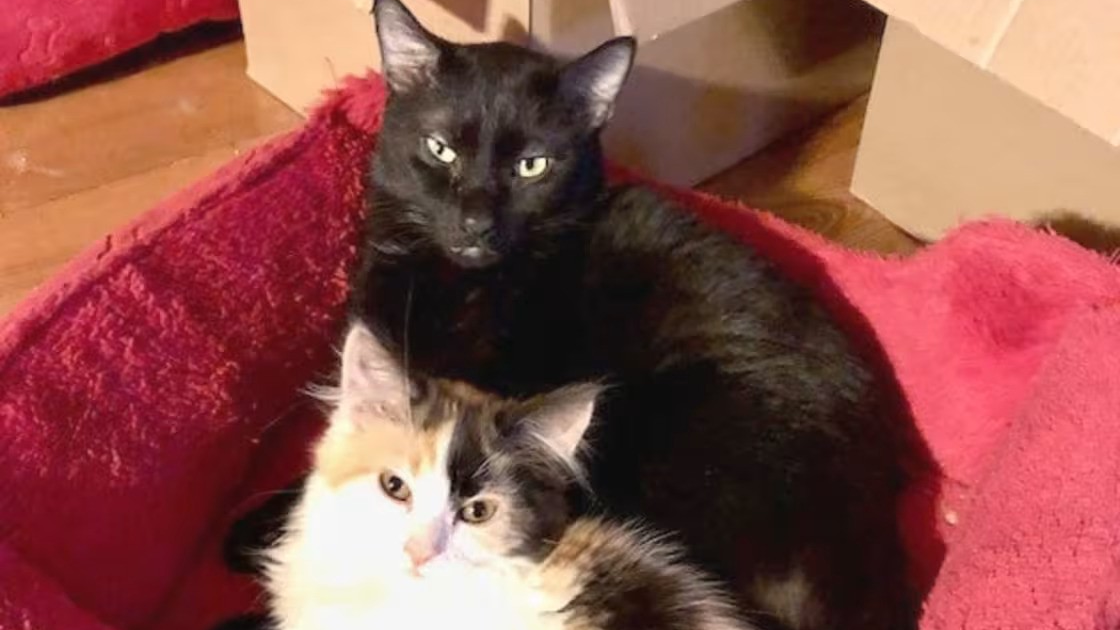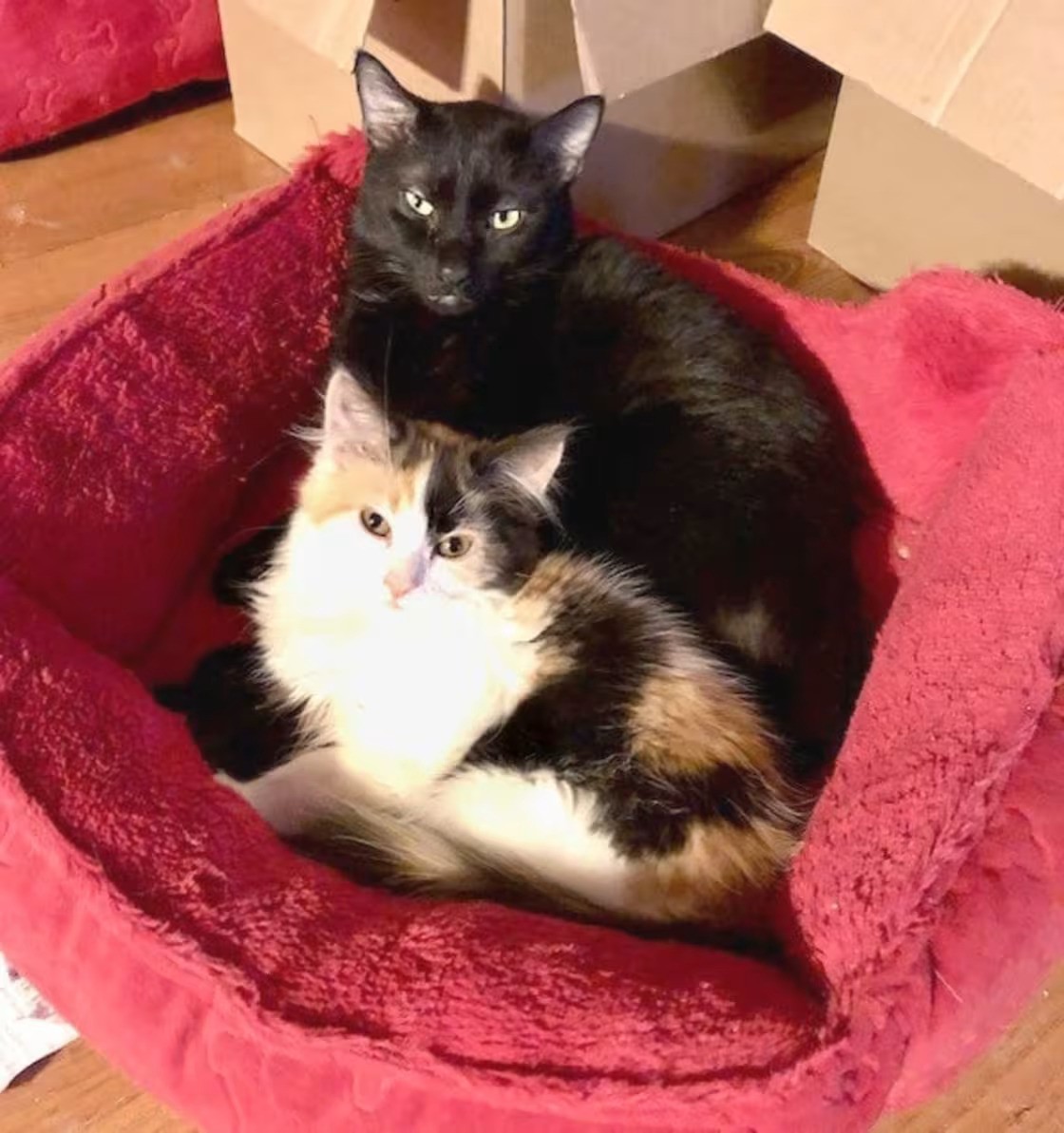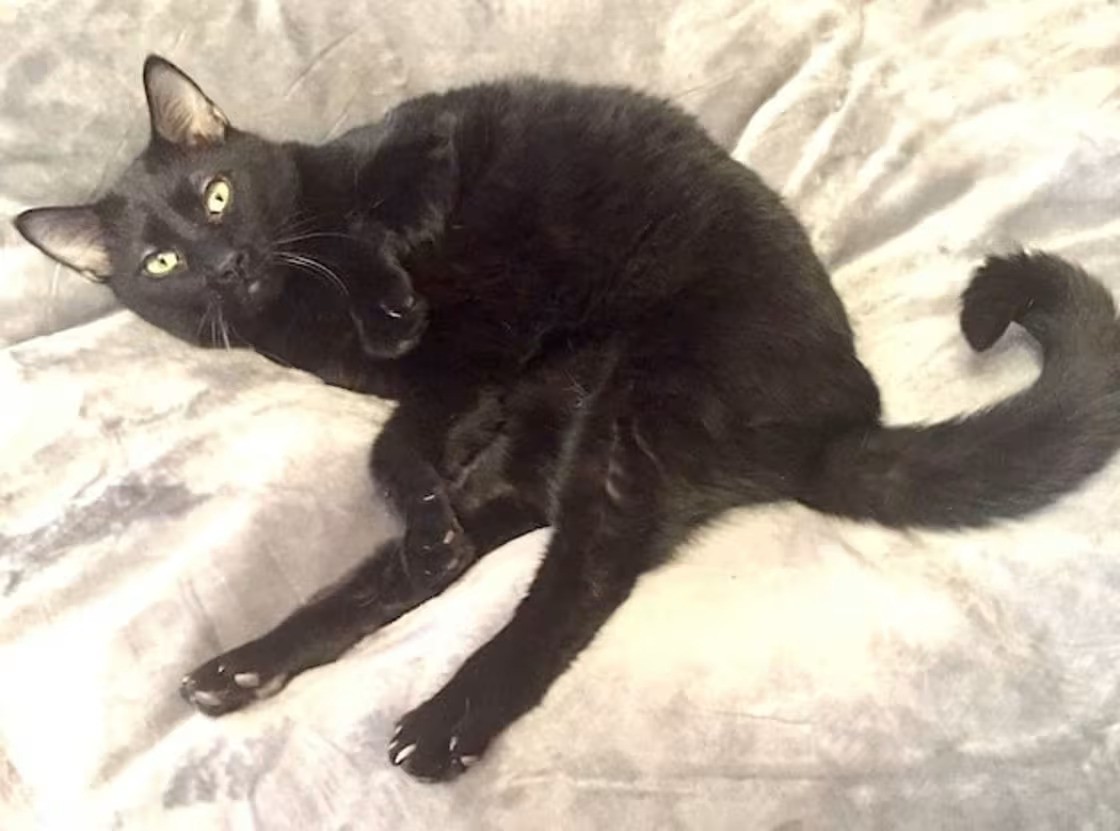📖 Table of Content:
At first glance, Elvis might look like just another shelter cat. But step into the foster room at Open Arms Animal Shelter in Louisa, Kentucky, and you’ll immediately notice him. His walk is different—wobbly, uneven, as though he’s forever dancing to a rhythm only he hears.
That’s because Elvis was born with cerebellar hypoplasia, a neurological condition that affects balance and coordination. But what could have been a limitation turned into something extraordinary: Elvis has become the heart of the shelter, the cat who raises kittens as if they were his own.
His story began years ago when Elvis was rescued along with his siblings and mother. Volunteer Beverly Pack stepped in, adopting the entire family. As Elvis grew, Beverly noticed he wasn’t like the other kittens. He stumbled when he walked, struggled to stand steady, and often toppled over while trying to play. A veterinarian diagnosed him with cerebellar hypoplasia, sometimes referred to as “CH.” Cats with this condition are often nicknamed “wobbly cats” because their motor skills don’t develop normally.
But where some might have seen only struggle, Beverly saw potential. Elvis’s disability never dampened his spirit. Instead, he developed into one of the most affectionate and nurturing cats Beverly had ever seen. Soon enough, whenever a new litter of kittens arrived at the shelter, Elvis would position himself right in the middle of the action.
He had a knack for knowing what the babies needed. If they were nervous, he curled around them. If they needed grooming, he carefully licked their ears and fur. If they were too rowdy, he used his gentle but persistent personality to calm them down.
Beverly jokes that he’s more determined to wash kittens than any foster mom could ever be. His caregiving instinct became such a central part of the shelter’s foster program that Elvis is now known as the “king of fostering kittens.”
To date, Elvis has helped raise over 100 kittens—teaching them how to socialize, comforting them when they’re scared, and showing them the simple but vital lesson that love exists even in the most uncertain times. Many of those kittens were orphans, abandoned or separated from their mothers far too early. With Elvis by their side, they didn’t just survive—they thrived.
Elvis’s efforts didn’t go unnoticed. In 2022, he became one of five winners of the Arm & Hammer Feline Generous “Happily Furever After” contest, which highlights shelter cats making a difference. The award came with a $10,000 prize and a year’s supply of litter for the shelter, resources that directly supported Elvis’s ongoing mission.
For Beverly, the recognition wasn’t just about the money—it was about shining a light on cats like Elvis, who may not be “perfect” but are perfectly capable of changing lives.
A Wobbly Warrior with a Big Heart
Living with cerebellar hypoplasia means Elvis faces challenges most cats never have to consider. Grooming himself is difficult, so Beverly steps in to help keep him clean. Trips to the litter box can be tricky—sometimes he stumbles or tips over, much like a fainting goat, as Beverly lovingly describes it. But Elvis doesn’t let these obstacles define him. Instead, he adapts with a resilience that inspires everyone around him.
Watching him play is a lesson in determination. He’ll try to run, legs flailing in every direction, and when he inevitably falls, he just gets back up again. There’s a joyful persistence in him, a refusal to quit, that mirrors the spirit of the very kittens he helps foster. For the tiny cats learning to navigate the world for the first time, Elvis is more than a companion—he’s a role model.
Beyond the practical care, Elvis provides something no human volunteer can replicate: comfort from a fellow feline. Many orphaned kittens come to the shelter frightened, confused, and unsure of their surroundings. When Elvis sidles up next to them, wobbly but calm, they sense safety. His presence reassures them that they are not alone. Slowly, they learn to trust, to play, to snuggle. In this way, Elvis becomes their anchor.
The effect reaches further than the shelter walls. Elvis has built a following on social media, where fans eagerly watch videos of him cuddling kittens, toppling over during playtime, and stubbornly insisting on cleaning the ears of every new arrival. For many viewers, he represents hope: proof that a disability does not define worth, and that compassion often comes from the most unexpected places.
What makes Elvis’s story even more powerful is the message it carries about adopting special-needs cats. Too often, animals with disabilities are overlooked in shelters, seen as “too much work” or “less adoptable.” Elvis flips that perception on its head. His life demonstrates that with a bit of patience and extra care, special-needs cats can offer just as much—if not more—love, joy, and companionship as any other pet.
Beverly has witnessed firsthand the impact Elvis has on the people who meet him. Visitors walk into the shelter expecting pity when they hear about a “wobbly cat,” but instead, they find themselves captivated by his spirit.
His crooked walk becomes endearing. His persistence, inspiring. His role as foster dad, unforgettable. Elvis reminds them—and all of us—that imperfection can be beautiful, and that true value often lies beneath the surface.
As Beverly puts it, “With a little extra love and patience to make sure Elvis’ needs are met, we have given Elvis a happily furever after. And in turn, Elvis has become a fantastic foster dad to hundreds of foster kittens.”
He may not walk a straight line, but his path leads exactly where it needs to—straight into the hearts of everyone he meets.


